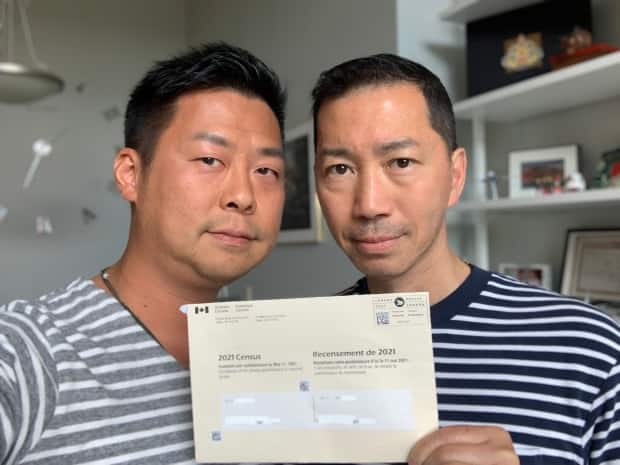Online campaign encourages Hong Kongers in Canada to recognize their identity in 2021 census

A group of Hong Konger Canadians has launched a nationwide campaign in the hopes of making their mark on the 2021 census and encouraging the federal government to recognize "Hong Konger" as an official identity.
The #IAmHongKonger campaign calls on members of the diaspora to select Hong Kong as their ethnic origin in the long-form census and to list Cantonese as one of their spoken languages at home in the short-form version.
Campaign organizers say they want their unique identity as Cantonese-speaking Hong Kongers recognized in Canada.
"We need to really uphold our identity, because we are not the same as Chinese," said Henry Lam, who moved to Vancouver with his husband six years ago.
Every five years, Canadians are invited to participate in the census to provide information on socioeconomic and demographic trends that can influence future policy decisions.
WATCH | #IAmHongKonger organizers want to make statement on 2021 census:
Hong Konger wasn't provided as an option in the 2016 census, and officials say anyone who noted it on the form would have been grouped as Chinese.
Lam said that can affect government services for Cantonese-speaking Hong Kongers.
"When they send out a survey to me, they only give me simplified Chinese, a.k.a. Mandarin, so it is not our reading language at all."
Census now includes Hong Konger as ethnicity
The director general of this year's census says Hong Konger is now included as an ethnicity on the form.
"Never has [there] been more desire for disaggregated data — data that doesn't lump people together," Geoff Bowlby said.
Bowlby said he believes there will likely be enough of a response to provide information specific to the Hong Kong diaspora.
Lam's husband said that in addition to the practical aim of better government services, China's actions in Hong Kong have given Hong Kongers in Canada a political motivation for the campaign.
"We don't want to be erased," Guy Ho said. "That is what the Chinese or the [People's Republic of China] is trying to do, and they want to keep the city but remove the people."
Protests against governments in Hong Kong and China swelled in 2019, and Beijing clamped down on expressions of anti-government sentiment in the city with a new national security law.

Leo Shin, an associate professor in the Asian studies department at the University of British Columbia in Vancouver, said China and its supporters could take note of an official distinction in census data.
"Given the sort of hyperconnected world that we live in? No doubt it will be noticed," he said. "I think there will be some reactions — maybe not necessarily from the government, but from the netizens to make this a political issue."
For Lam, it's about more than politics.
"We don't want our identity to be faded in our generation, because I am not sure for the future of Hong Kong."
He said the census campaign is a way to support friends protesting back home.

